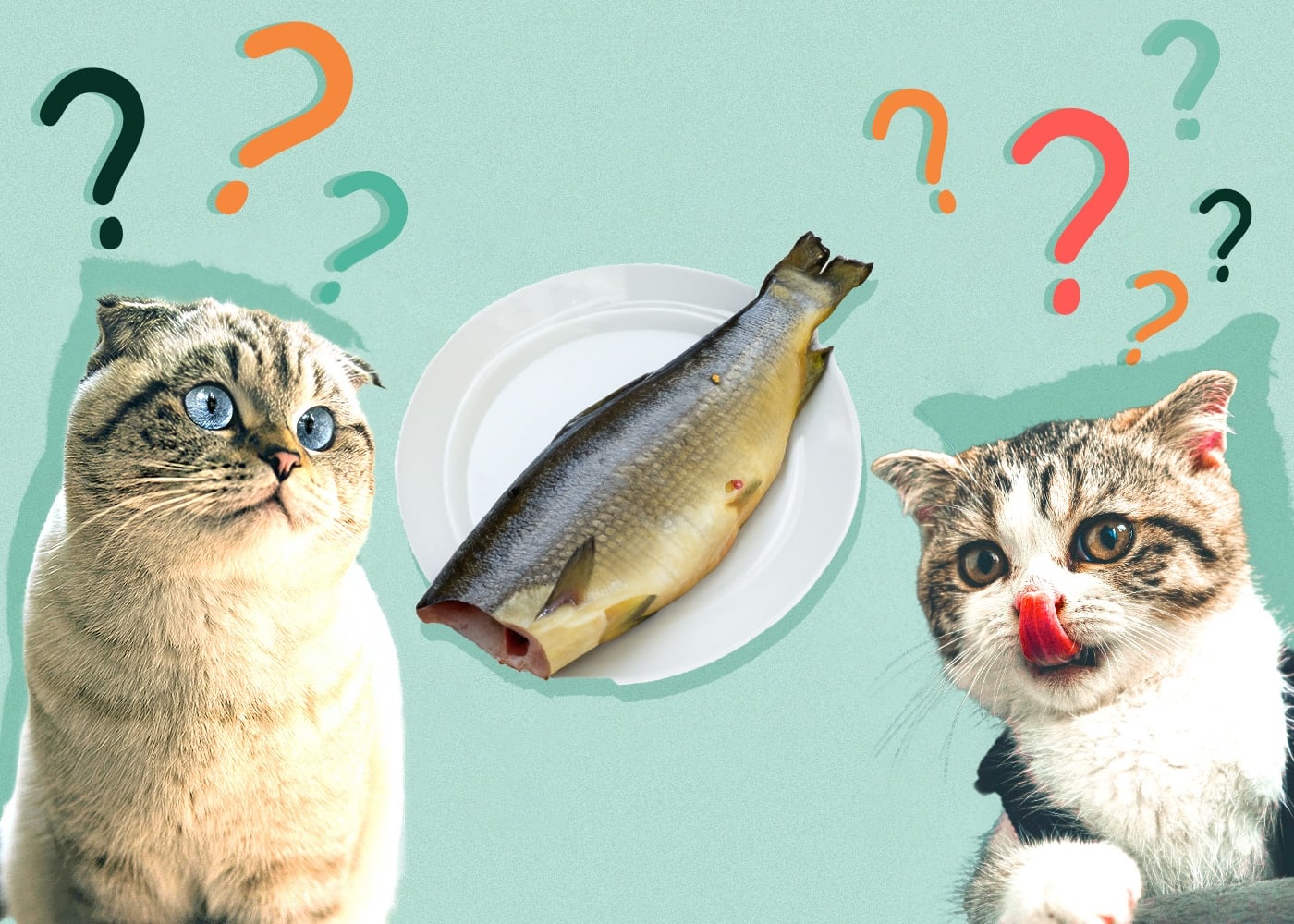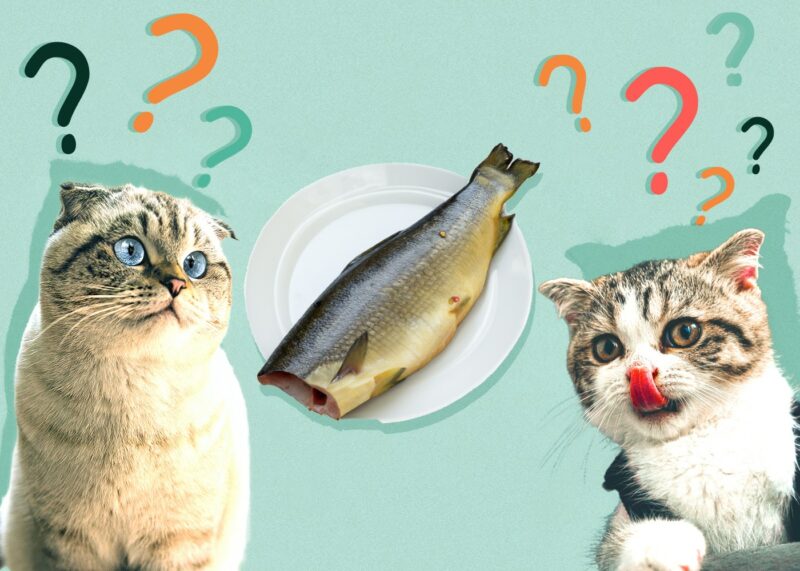While cats are often associated with eating fish, fish may not actually be a major part of their diets. Domestic cats descended from African wildcats, meaning their natural diets would mostly consist of small birds and mammals including small livestock as well as insects, frogs, lizards, fish and sometimes martens, weasels, polecats, and poultry.1
However, domestic modern cats can still safely enjoy eating fish as long as they don’t have any allergic reactions to it. When it comes to serving them raw fish, it’s recommended to refrain from feeding them any raw or partially cooked fish due to health risks. So, it’s important to prepare fish correctly if you plan to give it to your cat.
Feeding Cats Raw Fish
There are health benefits to feeding cats fish. Fatty fish is a natural source of essential omega-3 fatty acids, which are known to support joint and heart health and support brain development in kittens. Fish is also an excellent source of protein, calcium, phosphorus, and vitamin D.
However, there are some risks that come with feeding cats fish. Certain types of fish can contain high levels of mercury, which can be dangerous for cats. In general, fish that are known to contain high mercury levels include tuna, swordfish, and king mackerel.
On the other hand, there are specific risks associated with feeding cats raw fish. First, there’s the risk of contamination. Fish that hasn’t been cooked thoroughly is more susceptible to parasites and bacteria that cause food poisoning. Secondly, some raw fish contain thiaminase, an enzyme that destroys thiamine or vitamin B1, causing serious neurological problems and leading to convulsions and coma. Cats fed a raw fish diet are at high risk of developing thiamine deficiency. However, this enzyme is destroyed in cooking.
It’s also important to note that fish is a common food allergen for cats. Research has demonstrated that fish is the second most common food source involved in skin food allergies after beef. So, it may not be the best source of protein for some cats, especially if they have food sensitivities or allergies.
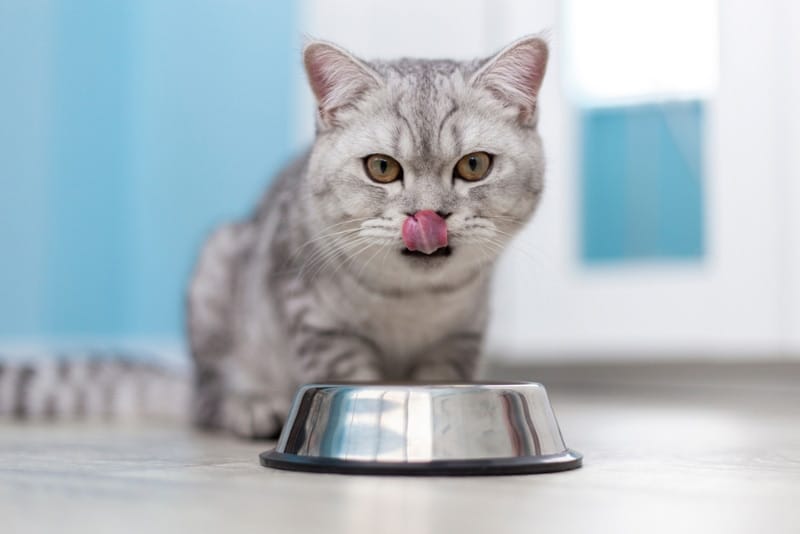
How to Feed Cats Fish Safely
If you have a generally healthy cat that doesn’t have any food allergies, they can safely eat cooked fish. You just need to avoid feeding them raw fish. Your cat can enjoy fully cooked, unseasoned fish if it’s been prepared properly.
First, the USDA food safety guidelines recommend that fish and shellfish be cooked to at least 145°F (62.8 ºC). Cooked fish also shouldn’t be left out for more than 2 hours at room temperature. If the temperature is 90°F and above, cooked fish shouldn’t be left out for more than 1 hour.
The fish should also be prepared without any seasoning or oil. Check for any bones before giving fish to your cat, as bones can be a choking and a foreign body hazard. If you plan to give your cat canned fish, make sure that the fish is in water, not oil.
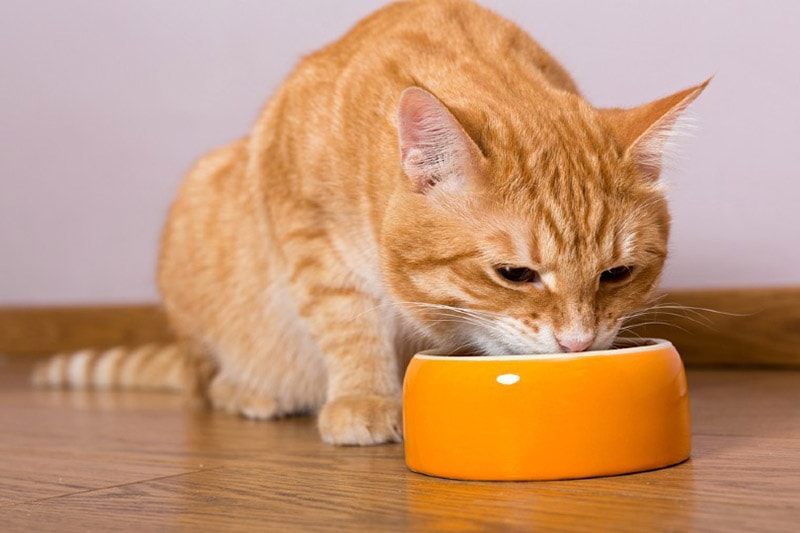
A Healthy Diet for Cats
Cats are obligate carnivores that require protein-rich diets with a moderate amount of fat and minimal carbohydrates. One of the safest and surest ways of getting your cat’s nutritional needs met is to feed them high-quality cat food from a reputable pet food brand. These types of diets have the stamp of approval from the Association of American Feed Control Officials (AAFCO) that ensures they meet or exceed the minimum requirements for cat food nutrition. You can find cat food in several different forms, such as dry, wet, and freeze-dried.
Cats and Raw Food Diets
These days, you can find pet food brands that specialize in developing raw food meals for cats. The appeal of these types of foods is that they closely match a cat’s natural diet, and they’re minimally processed. However, just because your cat is eating raw food, it doesn’t mean that all their nutritional needs are being met. So, it’s important to do your research on raw food recipes to ensure that they contain high-quality, nutritious ingredients.
Cat owners should also note that studies have shown that commercially prepared raw pet foods have increased risks of contamination. Cats are more susceptible to food poisoning caused by Salmonella, Listeria, and E. Coli.
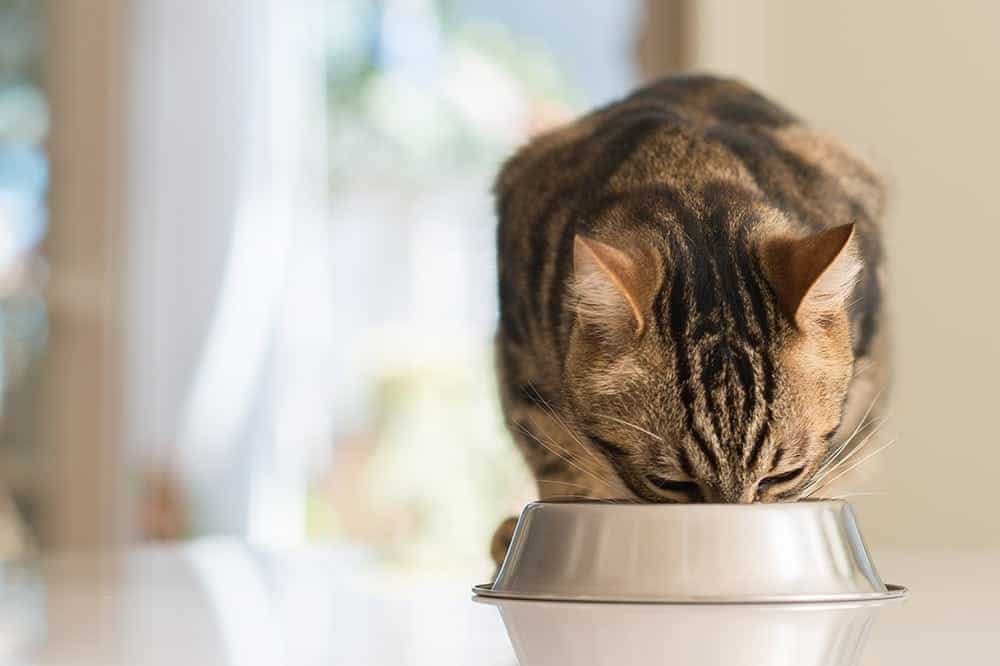
 Conclusion
Conclusion
While raw fish may seem like a reasonable food to give to cats, it can actually put your cat at risk of food poisoning and vitamin B1 deficiency. If you want to give your cat some fish, make sure that it’s unseasoned and cooked thoroughly. It’s also important to feed your cat a complete and balanced diet specifically formulated for them, and make sure that treats do not make up more than 10% of their diet. It’s best to encourage your cat to eat their regular meals and enjoy occasional treats.
Featured Image Credit: AALA IMAGES, Shutterstock

